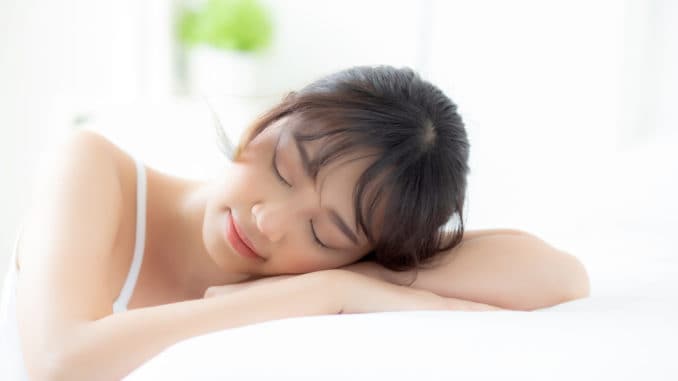
[cmamad id=”24786″ align=”center” tabid=”display-desktop” mobid=”display-desktop” stg=””]
Scientists have discovered a strange link between this type of sleep and cancer…

—-Important Message from Our Sponsor—-
FREE SAMPLE: Boost your libido with American Natural Super Reds
Could this be the biggest natural medicine breakthrough in the last 30 years?
Our early testing subjects are saying things like:
“Let’s just say Mr. Happy has woken up. My wife is very pleased too.” –Robert Ridley
“When it was time to exercise, I felt like I needed a nap instead. This has made my workouts 5x more effective and I can see the results in my body.” – T Moorehead
But, here’s the deal… We need more people to test it.
We want to get the formula JUST RIGHT before we release it to the general public.
So we have mixed up a limited number of complimentary samples for you to try.
The only thing we ask in return is that you give us your honest and unabashed opinion.
Interested? Click here for your free sample – but hurry before we run out!
———-
How sleeping this way can cause cancer
Our daily cycles are critical to our health.
The circadian rhythm – usually known as the sleep-wake cycle – is actually relevant to all processes in the body.
Over the past number of years, more and more evidence has accumulated showing the relationship between sleep disorders and cancer.
And now a new study shows that light therapy can cure sleep disorders in cancer survivors.

A review article published in the Journal of Molecular Medicine highlights some of the basic knowledge regarding sleep disturbances and cancer.
The paper explains that the “clock” within the brain affects changes in the expression of genes throughout the 24-hour cycle.
When the internal clock gets out of sync, people get ill.
“Desynchrony of this rhythmicity seems to be implicated in several pathologic conditions, including the progression of cancer.”
Understanding and modifying sleep patterns in people with cancer could be beneficial in treating the disease.
“Modifying sleep could be important for new targeted anticancer therapies, optimizing therapy and modifying lighting environments.”

Researchers carried out this pilot study at Northwestern University and published their results in the American Academy of Sleep Medicine.
This was a high-quality, randomized, controlled trial.
They designed this study to find out if bright light therapy in the morning could correct sleep disturbances in cancer survivors.
“The effect of morning administration of bright light on sleep and sleep quality was examined in a mixed group of fatigued cancer survivors.”
They assigned the participants either to a dim red light treatment or a bright white light treatment for 30 minutes every morning for a few weeks.
“44 cancer survivors screened for cancer-related fatigue were randomized to either a bright white light or a comparison dim red light condition.”
They assessed sleep quality and sleep onset using a sleep monitor and a questionnaire.
And they repeated this at numerous points during the study.
“Multiple sleep assessments were taken at four time points.”
The study showed that bright light in the AM had a positive effect on sleep quality in cancer survivors.
“Our measures indicated a statistically significant effect – with sleep efficiency improving more in the bright light condition over time.”
Bright light therapy was so effective that the people who received it had normal sleep patterns three weeks after the study ended.
“By the end of the intervention, and three weeks post-intervention, sleep in the bright light group was in the normal range.”
Most of the measures taken in the study showed that bright light therapy led to an improvement in sleep.
“Medium to large effects were also seen in sleep quality, total sleep time, and wake after sleep onset for participants favoring the bright light.”
The ability to modulate and repair broken sleep patterns could be very useful in the treatment of many common diseases – such as cancer.
This study is even more important as it shows that light treatment can correct sleep disorders in people who have already had cancer.
Light affects the central “clock”…
And this clock controls gene regulation, which is upset in cancer and other chronic illnesses.
[cmamad id=”24787″ align=”center” tabid=”display-desktop” mobid=”display-desktop” stg=””]
We already know that blue light in the morning affects one of the main hormones related to sleep: melatonin.
Melatonin initiates sleep onset.
Blue light in the morning degrades the melatonin from the night before – making people more alert in the morning.
After the morning light treatment, the pulse of melatonin later that day is more potent than it would have been otherwise.
This may be why bright light therapy in the morning improves sleep.
The bright light device used in this study emitted “white light.”
White light is actually a mixture of different wavelengths of light.
(White is a perception rather than a wavelength or color.)
The device used in this study has a strong peak in the blue light spectrum.
“Litebook’s spectral emission peaks in the blue range at 464 nm.”
The effect here may be from the blue light from the device.
I think it’s a good idea to get exposure to strong light as early as possible every day.
Natural sunlight is better if you can get it.
You should see a healthcare professional about diagnosing sleep problems and cancer.
—-Important Message—-
Here is the cancer cure…before they covered it up.
More than 90 health researchers like myself have been working on a cancer cure known as GcMAF.
GcMAF won’t rob you of your hair. It won’t make you sick. It won’t harm healthy cells.
It’s a natural miracle cure to the worst illness on the planet.
But then Big Pharma found out about it…
And they started doing everything in their power to cover it up.
———-

- Circadian Rhythm Disruption in Cancer Biology
https://www.ncbi.nlm.nih.gov/pmc/articles/PMC3521792/ - The Effect of Systematic Light Exposure on Sleep in a Mixed Group of Fatigued Cancer Survivors
http://jcsm.aasm.org/ViewAbstract.aspx?pid=31162
- [Bright light therapy].
https://www.ncbi.nlm.nih.gov/pubmed/18214357 - Bright Light Therapy
http://sleepeducation.org/treatment-therapy/bright-light-therapy/
